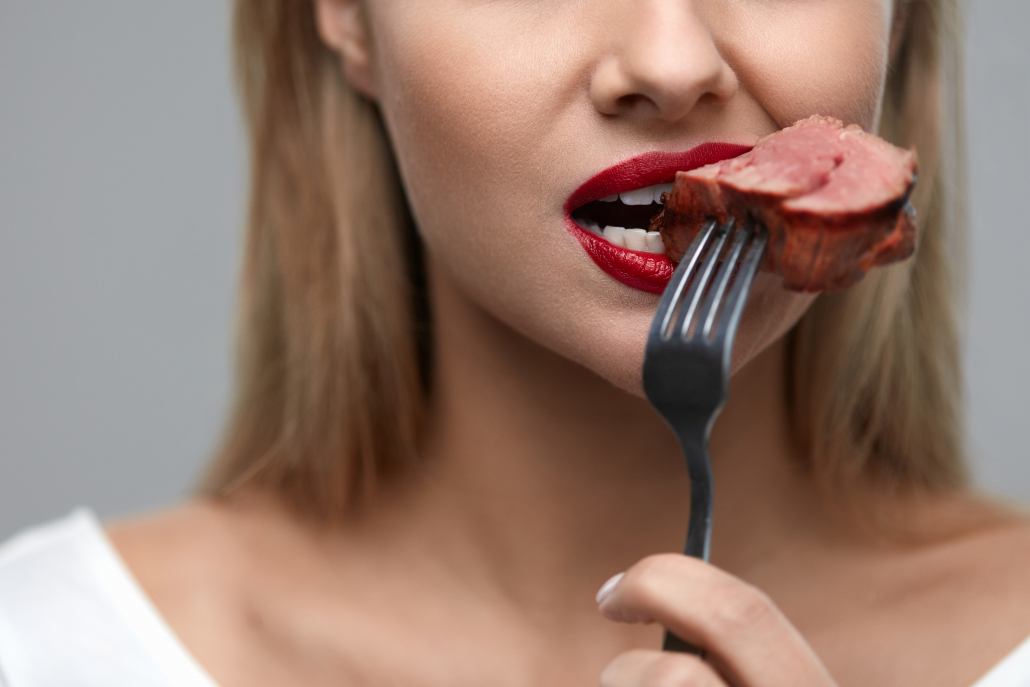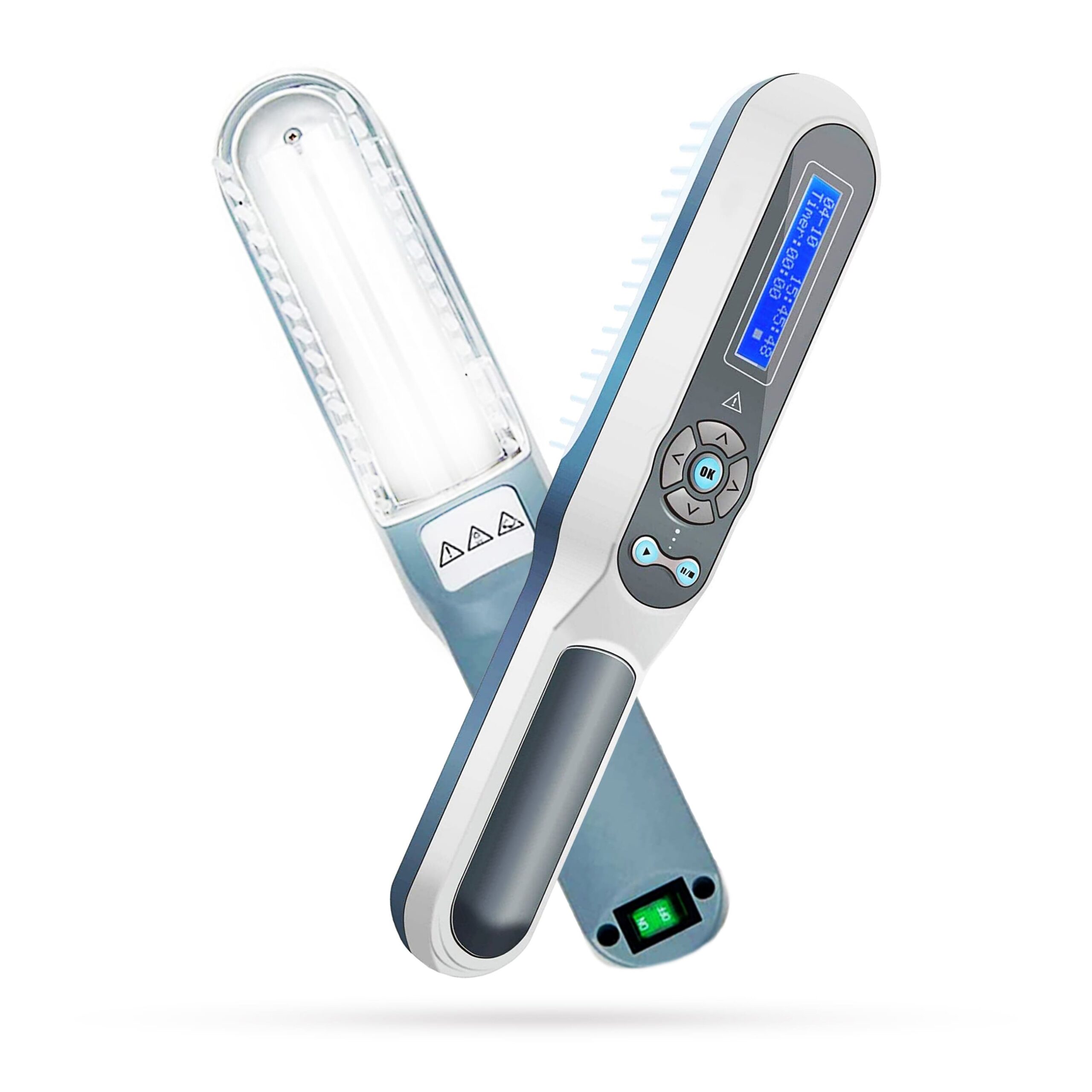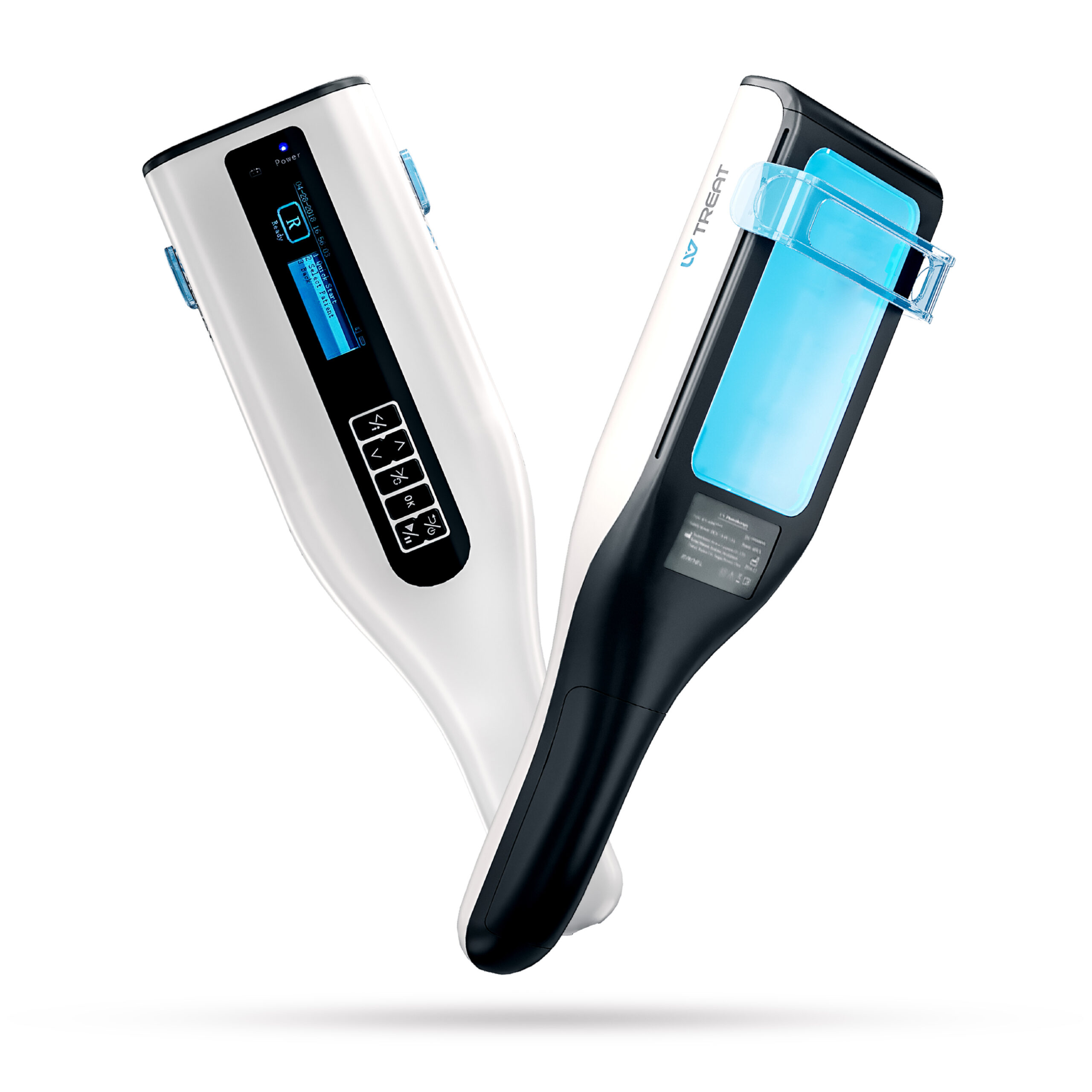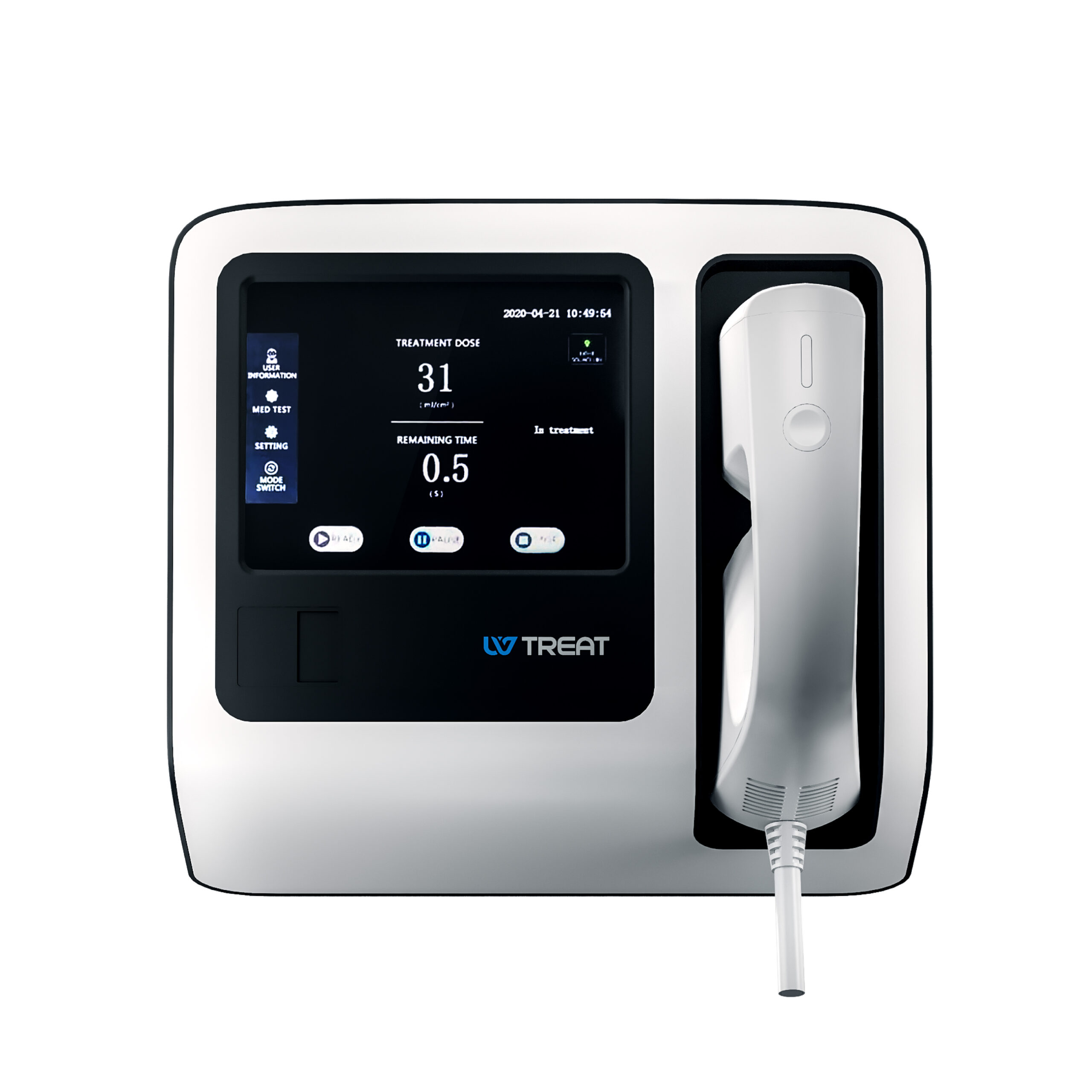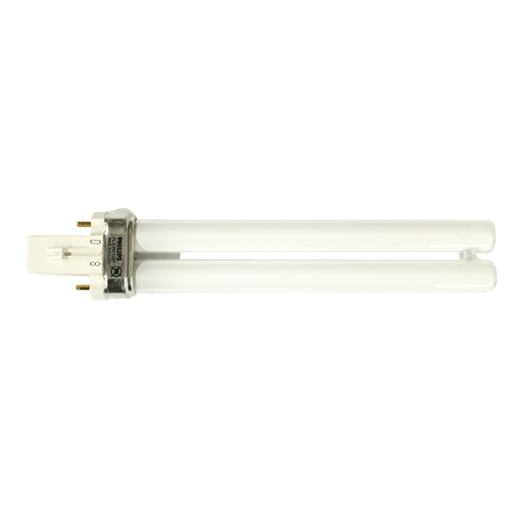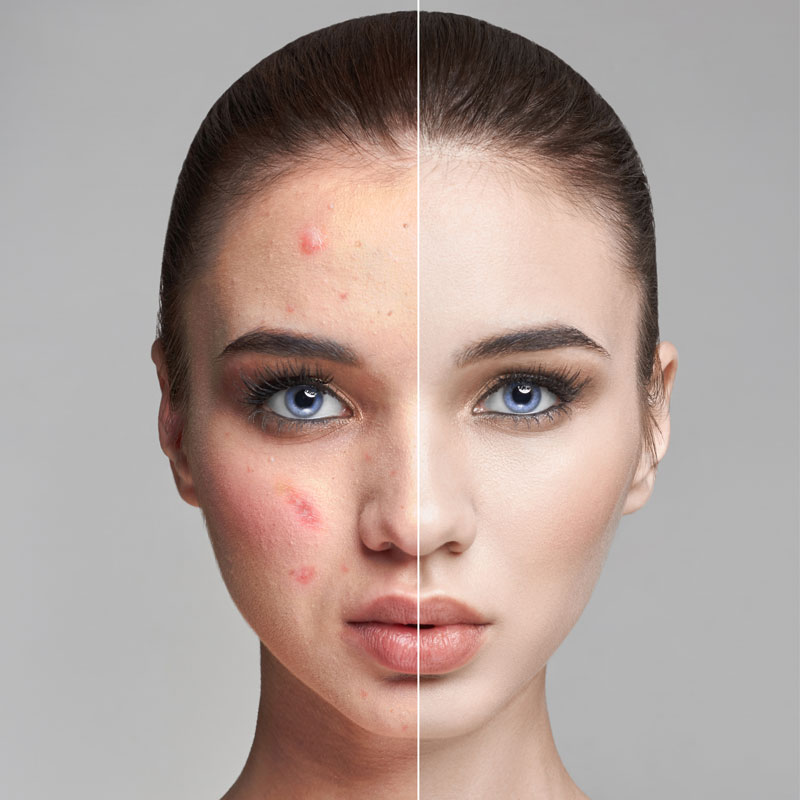In recent years, the carnivore diet gained traction for its unapologetically meat-centric model of nutrition. The diet enthusiasts claim that it cures everything from inflammation to autoimmune diseases – including psoriasis. But are these arguments backed by science? Is the removal of all plant-based foods the solution for managing the symptoms of psoriasis?
In this article, we will discuss the carnivore diet, what it is, how it can influence the condition of psoriasis, and whether it is effective and safe for the treatment of the disease.
Psoriasis and Diet: What’s the Link?
Psoriasis is an autoimmune skin condition that creates red scales across the skin’s surface. Psoriasis results from the immune system’s attack on normal skin cells that are growing quickly.
Psoriasis has currently no cure, but diet affects the symptoms, researchers find. Some trigger inflammation and others are soothing to the immune system. [1]
A lot of people with the condition find that making diet tweaks such as lowering the intake of sugar, alcohol, and processed foods are successful at preventing flare-ups. So, is the carnivore diet with the exclusion of carbs and vegetables the solution?How Can the Carnivore Diet Help Psoriasis?
There is limited scientific research on the carnivore diet and psoriasis, but some people report that it helps their symptoms. The diet might be of benefit for the following reasons:
Since the carnivore diet rules out processed foods, refined sugars, and known inflammation triggers such as seed oils, people find that they feel better about the health of their skin.
Specifically, the diet contains high amounts of the anti-inflammatory omega-3 fatty acids from fish and animal fats. The Omega-3s have been shown to reduce the severity of the symptoms of psoriasis by soothing the immune responses of the body. [4]
Plant foods contain lectins, gluten, and vegetables of the nightshade type that are known to trigger inflammation in people. Just by avoiding the intake of all the plant foods, the carnivore diet automatically eliminates these triggers that are likely to trigger flare-ups.
There is emerging evidence that gut health is also very important in psoriasis. The imbalance of the gut bacteria can result in systemic inflammation, which can lead to autoimmune responses. [5]
Yet it should be noted that fiber, derived from plant sources of nutrition, is also crucial for the health of the gut. The carnivore diet, lacking fiber, might be more of a negative for individuals rather than a positive.
-
Helps with Weight Management
Psoriasis has a link with obesity, and it triggers inflammation within the body. A 2021 study concluded that the low-calorie ketogenic diet, just like the carnivore diet, helped with the reduction of inflammation for individuals with psoriasis. [6] Loss of excess weight may reduce inflammation and ease psoriasis symptoms.
The Risks of the Carnivore Diet for Psoriasis
While the carnivore diet has positive attributes, it carries risks and negative consequences — most notably for people with psoriasis.
By eliminating fruit, vegetables, and whole grains, the carnivore diet eliminates such vital nutrients as:
- Vitamin C: For collagen synthesis and skin health.
- Fiber: Vital for gut health and reducing systemic inflammation.
- Antioxidants: Assist in combating oxidative stress, a cause of psoriasis flare-ups.
In the long term, this can cause deficiencies that are likely to worsen rather than treat the psoriasis.
-
Increased Saturated Fat Intake
The diet is extremely high in saturated fats from red meat and animal products. While some studies suggest that saturated fats alone do not cause heart disease. But they can still trigger inflammation in some people — especially those with autoimmune conditions.
-
Lack of Long-Term Research
No direct scientific study between the carnivore diet and more successful psoriasis results currently exists. A great deal of the evidence is anecdotal — that is, people’s experiences rather than clinical trials. Some people are successful with the diet, but it isn’t clear if it is the elimination of processed foods that they are successful with or something about the all-meat diet.
What Is the Carnivore Diet?
It is a strict diet that eliminates the intake of plant-based foods and involves the intake of only animal products. [2] It encompasses the intake of:
- Meat items (pork, lamb, beef)
- Poultry
- Seafood
- Eggs
- Animal fats and organ meats
Some variations also eliminate dairy and seasonings. Supporters believe that by cutting out plant foods, they remove common triggers of inflammation and autoimmune reactions. While many individuals report improvements in energy and skin health, scientific validation of these claims remains limited.
People on this diet exclude carbs completely from their diet, including vegetables, fruit, seeds, legumes, and grains. Some of the diet types exclude seasonings and dairy products too.
Supporters of the diet state that eliminating plant foods reduces inflammation and improves health. Some people with autoimmune conditions, including psoriasis, reported relief of symptoms. Little scientifically validated evidence for these arguments exists, and the diet remains controversial.
The Carnivore Diet and Psoriasis
Inflamed tissue is assumed by most individuals to be caused by the intake of plant foods, and removing them from the diet can help with psoriasis. The carnivore diet thus came into prominence as a symptom-managing treatment.
While the removal of several of these anti-inflammatory foods might be advantageous, the removal of the plant foods altogether could also have risks. Before attempting the diet, it should be kept in mind that it influences the health and the condition of the psoriasis. [3]
Does the Carnivore Diet Cure Psoriasis?
There is no cure for psoriasis currently, and the carnivore diet is not a proven treatment. However, some people find that this diet helps manage their symptoms by reducing inflammation and avoiding trigger foods.
It remains important that more be researched about the effect of this diet on psoriasis. Before trying it, talk with a doctor or nutritionist so that you are assured that you are providing proper nutrition for your body.
The Risks of the Carnivore Diet for Psoriasis
While the carnivore diet has positive attributes, it carries risks and negative consequences — most notably for people with psoriasis.
By eliminating fruit, vegetables, and whole grains, the carnivore diet eliminates such vital nutrients as:
- Vitamin C: For collagen synthesis and skin health.
- Fiber: Vital for gut health and reducing systemic inflammation.
- Antioxidants: Assist in combating oxidative stress, a cause of psoriasis flare-ups.
In the long term, this can cause deficiencies that are likely to worsen rather than treat the psoriasis.
-
Increased Saturated Fat Intake
The diet is extremely high in saturated fats from red meat and animal products. While some studies suggest that saturated fats alone do not cause heart disease. But they can still trigger inflammation in some people — especially those with autoimmune conditions.
-
Lack of Long-Term Research
No direct scientific study between the carnivore diet and more successful psoriasis results currently exists. A great deal of the evidence is anecdotal — that is, people’s experiences rather than clinical trials. Some people are successful with the diet, but it isn’t clear if it is the elimination of processed foods that they are successful with or something about the all-meat diet.
Should You Try the Carnivore Diet for Psoriasis?
If you’re thinking about trying the carnivore diet for psoriasis, here are the points to consider:
- Discuss it with your doctor or dermatologist first. Any strict diet has health implications, especially if you have an autoimmune condition.
- Monitor your symptoms. If you’re attempting the diet, maintain a symptom diary that records the progress of your skin throughout the years.
- Consider balance. Instead of removing the entirety of the plant foods, you may try eliminating the most likely suspects including gluten, nightshade vegetables, and processed carbs but retaining dense vegetables and healthful fats.
In Summary
The carnivore diet for psoriasis is an unconventional, highly restrictive eating plan that some claim reduces inflammation and improves skin health. While there are anecdotal reports of success, the lack of long-term research, risk of nutrient deficiencies, and potential health drawbacks mean it should be approached with caution.
More evidence supports balanced anti-inflammatory diets—like the Mediterranean or modified elimination diets—for improving psoriasis outcomes without extreme restrictions. If you are considering the carnivore diet, consult with a healthcare provider to ensure your nutritional needs are met.
In the end, no diet can cure psoriasis, but the right nutrition can help manage symptoms and improve quality of life.
